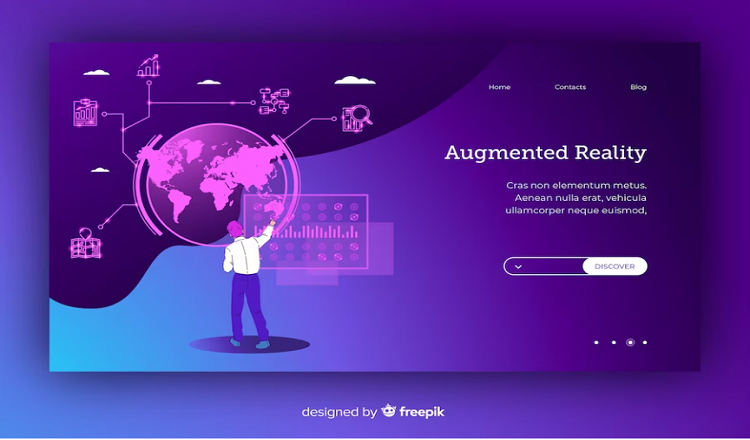Welcoming you to the intriguing realm of artificial intelligence (AI), a branch of computer science whose goal is to create robots with intelligent behaviour akin to that of humans. It’s easy to understand why artificial intelligence (AI) has become a popular buzzword in the tech sector. Artificial intelligence (AI) has the potential to drastically change how we live and work, from virtual assistants to self-driving cars.
AI is gaining importance in today’s fast-paced world where technology is developing at a rapid pace. Almost every business, including healthcare, education, transportation, and finance, stands to benefit from it. In fact, analysts believe that the future of AI is so bright that it will one of the most important drivers of economic growth in the upcoming ten years.
We’ll examine the future of AI and what to anticipate over the next ten years in more detail in this post. We’ll look at the most recent developments in AI, any ethical issues that might arise, and how AI is being applied in many fields. So, fasten your seatbelts and get ready to learn what the future of AI in the USA holds.
AI developments
AI has made significant strides in recent years, making it a hot topic in the tech sector. AI is revolutionising how we live and work with technologies like self-driving cars and virtual assistants. Several industries, including healthcare, finance, and transportation, to mention a few, are using AI. AI is being utilised in healthcare to find new drugs and diagnose diseases. AI is being utilised in finance for financial analysis and fraud detection. AI is being applied in the transportation industry for traffic control and self-driving cars.
There is little doubt that there will be further advancements in the realm of artificial intelligence as we look to the future. According to experts, AI will develop further, resulting in more individualised and effective services across industries. We can anticipate AI-powered solutions for increased cybersecurity, better healthcare outcomes, and environmental preservation. In the coming years, AI will be a technology to pay special attention to since it has the ability to drastically change almost every area of our lives.
Ethical Questions Regarding AI
While AI has the potential to improve our environment, it also brings up a number of ethical issues that need to be resolved. One worry is that because AI may be trained to learn from biassed data, it may reinforce current biases and discrimination. The possibility for AI to be used maliciously, such as in cyberattacks and deepfake films, is another issue.
Another ethical issue that must be addressed is how AI will affect the work market. As AI develops, it has the potential to automate a large number of jobs, which might cause significant employment loss and societal instability. AI has the ability to acquire and utilise enormous amounts of personal data without permission or sufficient oversight, which raises further privacy concerns. To guarantee that AI has a positive impact on society that benefits everyone as it develops, it is crucial to address these ethical issues.
Healthcare and AI
With its potential to enhance patient outcomes and completely transform the way healthcare is provided, AI is making great progress in the healthcare industry. Healthcare organisations are utilising AI for disease diagnosis, drug discovery, individualised treatment regimens, and image analysis. AI has huge potential for improving healthcare, including quicker diagnosis, better treatment results, and lower costs.
However, there may also be ethical issues with the application of AI in healthcare. The potential for AI to reinforce current biases and discrimination in the healthcare industry is one cause for concern. The ethical ramifications of excluding humans from medical decision-making and instead depending only on AI raise further ethical questions. Despite these reservations, it is clear that AI in healthcare has some advantages, and in the years to come, it is likely to be used more frequently.
Education and AI
With its ability to personalise learning, increase student engagement, and boost student outcomes, AI is being employed in education more and more. AI is being utilised in education for student support, personalised learning, and assessment. AI-powered solutions can also assist teachers in early identification of at-risk pupils and the provision of focused interventions to enhance student results.
Significant potential advantages of AI in education include increased student engagement, more effective use of teachers’ time, and personalised instruction that can cater to the requirements of specific students. The use of AI in education, however, may also raise ethical questions about data security and privacy, bias and discrimination, and the possibility for over-reliance on AI in decision-making. It is crucial to take care of these issues while utilising the potential advantages of AI to enhance educational performance.
The Environment and AI
A variety of environmental issues, such as climate change, deforestation, and wildlife protection, are being addressed with AI. The monitoring, analysis, and prediction of environmental patterns as well as the efficient use of resources are all made possible by AI. AI-powered solutions can also improve environmental policy decision-making by identifying the regions where conservation initiatives will have the greatest impact.
The application of AI in environmental conservation has significant potential advantages, including increased resource efficiency, more effective conservation planning, and greater environmental monitoring accuracy. The application of AI in environmental conservation, however, raises possible ethical issues, including data privacy and security, the ability to exclude local communities from decision-making, and the possibility for unexpected consequences of actions powered by AI. While utilising the potential advantages of AI to address environmental difficulties, it is imperative to address these concerns.
Society and AI
With the potential to have an impact on work, healthcare, education, and entertainment, AI is quickly transforming society. AI is altering how we live, work, and interact with one another. Decision-making is also being impacted by AI-powered technology in industries including finance, law enforcement, and national security.
The potential benefits of AI for society are enormous, and they include better decision-making, increased productivity, and improved quality of life. However, there are also possible drawbacks to the employment of AI in society, such as the possibility of job displacement, the maintenance of preexisting prejudices, and the possibility that AI-driven technology would be misused.
In addition, there may be ethical issues with AI in our society, such as data security and privacy, the possibility of marginalised people being excluded from decision-making, and the possibility of unintended repercussions of AI-powered interventions. It is crucial to solve these issues while also making use of AI’s potential advantages to advance civilization.
Conclusion
The developments in AI, ethical issues related to AI, and the effects of AI on many industries and society have all been covered in this article. We have looked at how artificial intelligence is being used in healthcare, education, and environmental protection, as well as how it is affecting society as a whole. Although AI has immense potential for good, there are also certain possible drawbacks and ethical dilemmas that need to be resolved.
With continuing development and growing use across numerous industries, the future of AI is bright. It is essential for society to keep aware and involved with the developments in this sector as AI continues to progress. The ethical implications of AI must be discussed in depth in order to make sure that AI-powered technologies are created and applied in a responsible and inclusive manner.
As a result, we encourage our readers to follow and participate in advancements in AI, to fund research into the subject, and to actively engage in conversations about the ethical implications of AI. Together, we can make sure that society as a whole gains from AI in the future.
Read More You May Like:











